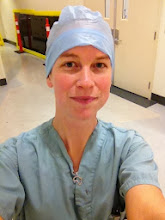How can I help you when I don't even like you?
How do you provide good medical care to someone you don't like? For example the man who smiles at you but calls the nurse a "lazy bitch"...Or the woman who interrupts you with "now you listen to me missy"...Or my worse case yet, the retired and demented sex offender.
How do we normally deal with people we dislike? It's an interesting question and I'm sure you can think of a couple of different ways that you've coped with this problem. Do you avoid the person? Do you ignore them? Do you politely get through the encounter while discrediting in your mind, all that's been said? Do you confront them? Do you let them walk all over you? Do you try and find a medium or a balance that leaves both parties satisfied?
I need to provide equally good medicine to all my patients. I believe I've used all the above techniques at some point to deal with an unpleasant situation, with varying levels of success. And of course what works for some patients may not work for others. But somehow we, as physicians, must learn to push aside our dislikes to evaluate critically what is wrong with the patient and to give them the best possible care, regardless of the negative emotions the person might elicit from us.
I think of all of this today because one of my "toughies", a person I would mentally have to prepare myself for before each and every visit, stopped me today in the hallway. The first time we interacted I was doing a colleague a favour by seeing her. This patient dictated exactly how the encounter was going to go, which made it unpleasant for both of us. She was rude and manipulative, and in retrospect, probably deeply afraid of the coming months. I left the room that day shaking with anger. But I'd also learned some tools on how to work with her in the future. Our next encounter went more smoothly. Near the end I was starting to get wound up so I called it a day. And from that day forward we had established our boundaries. And she opened up to me about her life, her children, her successes and her failures.
She was diagnosed young with ovarian cancer and it is killing her. Today when I saw her her appearance shocked me. By the flash of a younger self, who was startlingly beautiful. By the fact that she is so very obviously now dying. And even more so by my hand on her shoulder and her bringing her hand up to cover mine and to then pull me into a strong hug and a whisper in my ear "I love you".



